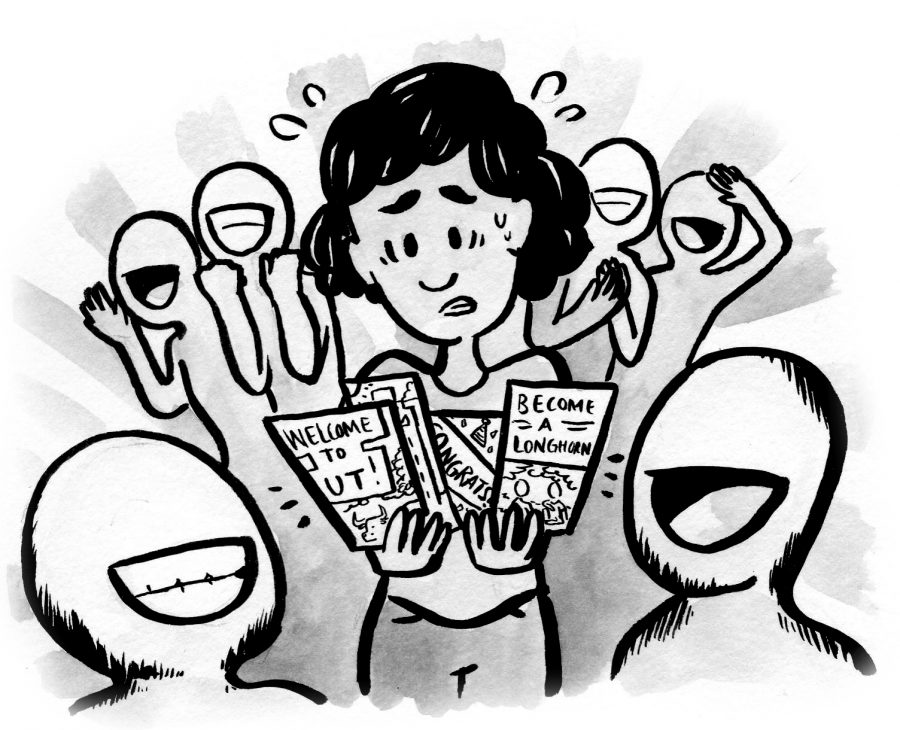It’s no secret that it’s tough to get a job after college, but what can underclassmen do to better their chances? University of Washington, DePaul University and Northwestern University all agree that starting early is one of the best things any college student can do in the career search. Freshmen and sophomores need to start working on professional development by attending campus events and taking advantage of the many resources available at UT.
The most recent statistics from COLA say that 17 percent of 2016 graduates were still unemployed and seeking jobs when they walked the stage. Cockrell Engineering reports a 9 percent unemployment rate. Students come to UT to invest in themselves, and they need to be proactive about their own opportunities and advancement to make this time worthwhile.
Scoring an internship early can be crucial since 60 percent of paid internships end with full-time offers. This internship statistic supports the famous estimate that at least 70 percent of all jobs are found through networking, never making it to public posting.
The two largest undergraduate colleges at UT are Natural Sciences and Liberal Arts, respectively. They both offer their own types of professional advice and career aid to students. Both career services offices provide sections on their websites about resumes, cover letters and job listings for students. Both offices also offer sporadic events as well, often clustered around career fairs. Career coaches, however, are the greatest resource in these offices. These coaches are there specifically to guide students in exploring their passions and scoring jobs they care about.
Career services offices may seem overwhelming for some, though, as students often need to come prepared with questions and goals in mind. For bite-sized guidance on campus, 216 pre-professional organizations offer their own brand of advice to those entering the job market. Many of these clubs offer a tantalizing competition to career services, feeling like a safety net for any flailing freshmen.
Each organization provides their own mix of peer mentoring, alumni engagement, career exploration, networking and professional development. One of these large organizations is the Hispanic Business Student Association, a McCombs-sponsored group where five of the nine current officers are from outside McCombs. Business students are more than familiar with how to court recruiters, but accessing this information in other colleges can make a real difference in a student’s time after leaving UT.
“All of our events are open to anyone,” said Valarie Cardenas, President of Hispanic Business Student Association and supply chain management senior.
HBSA offers resume workshops, interview game shows, mentorship programs and more. In an average week, HBSA holds four or more events with at least two focused on career prep.
“No matter what major you are, you still need that professional development. Those are skills that are going to go with you no matter what,” Cardenas said.
Anyone can benefit from knowing how to write a resume or run a LinkedIn account. Attending one of these events will sharpen the skills of underclassmen clawing for internships, giving them a leg up against the competition.
Being proactive about your career can be the difference between a dream job and a day job. No matter what source they turn to on campus, underclassmen need to start now in preparing for life after college.
Foster is a junior Accounting Major from Dallas.


















